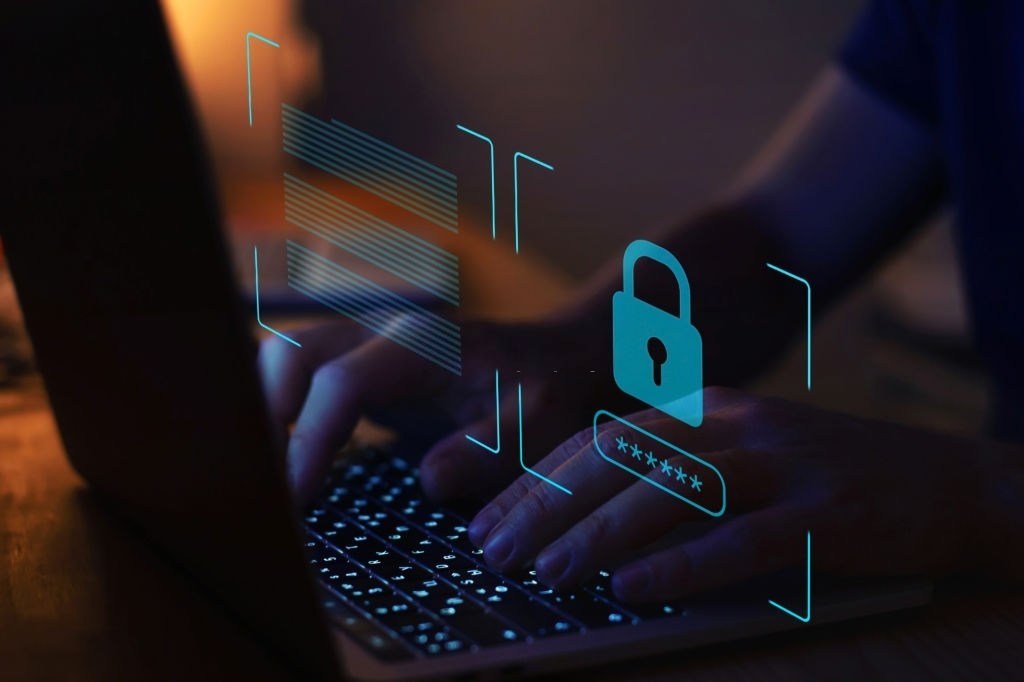Are you concerned that the IRS will release the personal information you provided while paying your taxes online, or that the DMV will release all of your personal information? That isn’t paranoid; it is logical. High-level security breaches can and do happen, and there’s nothing you can do about it. Follow few steps and protect your personal information online.
When you sit down to write your manuscript one day, you may discover that ransom ware has encrypted all of the previous chapters. You might also notice a big fat zero balance when you connect into your online banking system since your credentials were stolen by a data-stealing Trojan. On the plus side, you can defend yourself against these local issues.
It takes very little work to make your gadgets, online identity, and activities more secure. In reality, several of our suggestions for improving your internet security are nothing more than common sense. These suggestions for making your online life more secure will assist you in staying safe.
- What you need to know about protect your personal information online
- 1. Use Two-Factor Authentication if possible.
- 2. Install anti-virus software
- 3. Use Secure Passwords
- 4. Use Public Wi-Fi With Caution
- 5. Encrypt Your Information
- 6. Keep your operating system
- 7. Be wary of links and attachments.
- 8. Backup important your data.
- 9. Check to see if the website is safe.
- 10. Social Media Oversharing
- 11. Think about adding more security.
- Conclusion
What you need to know about protect your personal information online
1. Use Two-Factor Authentication if possible.
Although two-factor authentication is inconvenient, it significantly improves the security of your accounts. To gain access to your accounts, you must pass a second layer of authentication in addition to your login and password. You should use two-factor authentication if the data or personal information in an account is important or valuable, and the account allows it. Two-factor authentication is available in a number of online services, including Gmail, Evernote, and Dropbox.
Two-factor authentication confirms your identity by employing at least two separate types of identification: who you are, what you have, and what you know. Naturally, the password is something you already know. Something you are could refer to fingerprint or facial recognition authentication.
It’s possible that you have something with you, such as your cell phone. You might be asked to text a code or tap a confirmation button on a mobile app to confirm your identity. A physical Security Key could also be something you have; Google and Microsoft have both announced a push toward this type of authentication.
Anyone who learns your password controls your account if you only use it for authentication. The password is useless when two-factor authentication is activated. Most password managers allow two-factor authentication, while others only need it when a new device is connected. It’s critical to enable two-factor authentication for your password management.
2. Install anti-virus software
Of course, the most crucial tool for safeguarding your data on the internet is an antivirus. It’s essentially software that can efficiently defend your computer from a variety of virus threats.
The beauty of having an antivirus is that you may ignore it, allowing it to operate in the background and automatically scan for and remove viruses. While your operating system has antivirus software, it provides limited security.
It is preferable to use a third-party antivirus. Once you’ve decided on an antivirus program, you’ll need to renew it every year. As a result, setting the renewal procedure to occur automatically is a good idea.
As a result, you receive a full-featured antivirus with continuous protection without having to do any work.
3. Use Secure Passwords
Because the majority of data breaches are caused by weak or stolen passwords, it’s critical that you and your team follow strict password policies.
Because most of your employees work from home and have remote access to the network, the risk of a security breach is likely to be higher.
Here are some suggestions for making secure passwords:
- Never use the same password twice.
- Make it at least ten characters long.
- Include uppercase and lowercase letters, numerals, and memorable characters in your message.
There are tools that might assist you in creating unique passwords if you find it difficult. A password generator can assist you in creating fresh, safe passwords, which you may subsequently save in a secure password vault.
As a result, to access your other passwords, you’ll only need to remember one master password. Dashlane, LastPass, and 1Password are just a few of the well-known programs.
4. Use Public Wi-Fi With Caution
Using free public Wi-Fi is one of the things that people do these days. While public WiFi is quick and simple to connect to, it has very few security features.
This means that anyone with access to your data on the same Wi-Fi network can easily steal your personal information.
As a result, limit your use of public Wi-Fi to surfing the web rather than online shopping or connecting into your financial accounts.
5. Encrypt Your Information
When a transaction or activity is completed, you and your consumers will need to exchange information. You can utilize the Secure Socket Layers (SSL) protocol to ensure that sensitive information is safeguarded during the transfer. This means it aids in the security of the checkout process.
Furthermore, as of 2018, SSL is a requirement for your website. This is because any website without an SSL certificate will be flagged as potentially harmful by Google Chrome and other web browsers.
Fortunately, when you purchase one of their hosting plans, some hosting providers include a free SSL certificate. If not, you can always purchase it from a third-party source such as Cloudflare.
6. Keep your operating system
Hackers are constantly looking for holes in your system. They’ll exploit operating system or other software flaws and inject malicious malware to get access through the security hole.
Fortunately, software engineers are constantly on the watch for security flaws and fix them as soon as they’re discovered, preventing hackers from ever gaining access to your machine. As a result, regular operating system updates are critical for the security of your website.
The previously known vulnerabilities are patched by updating your operating system, and hackers will have to start looking for potential security flaws in your operating system all over again.
7. Be wary of links and attachments.
Cybercriminals are cunning, and their phishing scams are sometimes disguised as official messages from a bank, utility company, or other business. Certain characteristics, such as misspellings or a different email address than the usual sender, can indicate that the email is spam.
8. Backup important your data.
This is an often-overlooked but crucial aspect of website security. Because, no matter how hard you try to protect your data, mistakes can still happen.
Regular backups can keep your vital information safe and secure, preventing any unwanted loss of data.
Backups, on the other hand, are vulnerable if they are stored on the same server as your primary data. As a result, when performing backups, try storing your files in a secure location, such as the cloud.
Fortunately, most hosting providers include automated backups in their plans. As a result, you won’t have to worry about backing up your website on a regular basis.
All you have to do now is choose between daily, weekly, or monthly backups. Your web host will also provide restore points so you can get your backups back.
9. Check to see if the website is safe.
Take a look at the top of your browser before entering any personal information. If the URL begins with “https” and there is a lock symbol, the site is secure. A website privacy policy, contact information, or a “verified secure” seal are some other ways to determine if a site is trustworthy.
10. Social Media Oversharing
Oversharing personal information on social media accounts is a common problem that many people face these days. When sharing their location, birthday, hometown, and other personal information, people frequently fail to pay attention.
This is especially important if your social media accounts are open to the public, meaning that anyone with access to the internet can see your posts.
Keeping your social media accounts private and only allowing people you know to see your content is a good idea. If you use this strategy, the chances of someone exploiting your personal information if you unintentionally divulge it are much reduced.
11. Think about adding more security.
Install anti-virus, anti-spyware, and a firewall software. If you want to be extra safe, consider purchasing cyber insurance, which can protect you and your family in the event of a cyber-attack. Our experts at Chubb are ready to assess your cyber vulnerabilities, assist in the coverage of fraudulent charges, and ensure that you and your family have the resources you need to recover emotionally.
Conclusion
Because of the high unemployment rate throughout the world, hackers are more ruthless when it comes to finding potential security vulnerabilities in your website or social media accounts, protect your personal information online is more crucial than ever.
All that’s needed is to put these security measures in place, which will make it exceedingly difficult for hackers to access your data.
You can also read:

